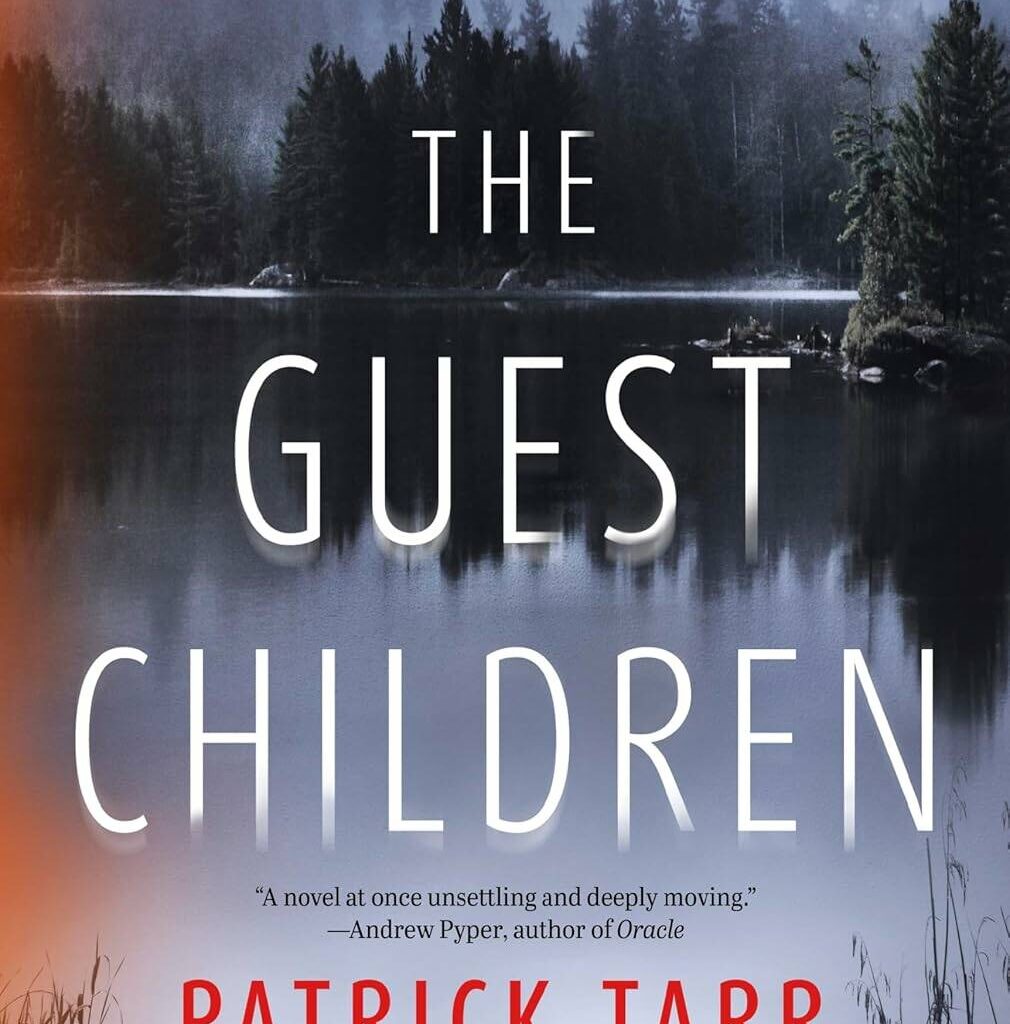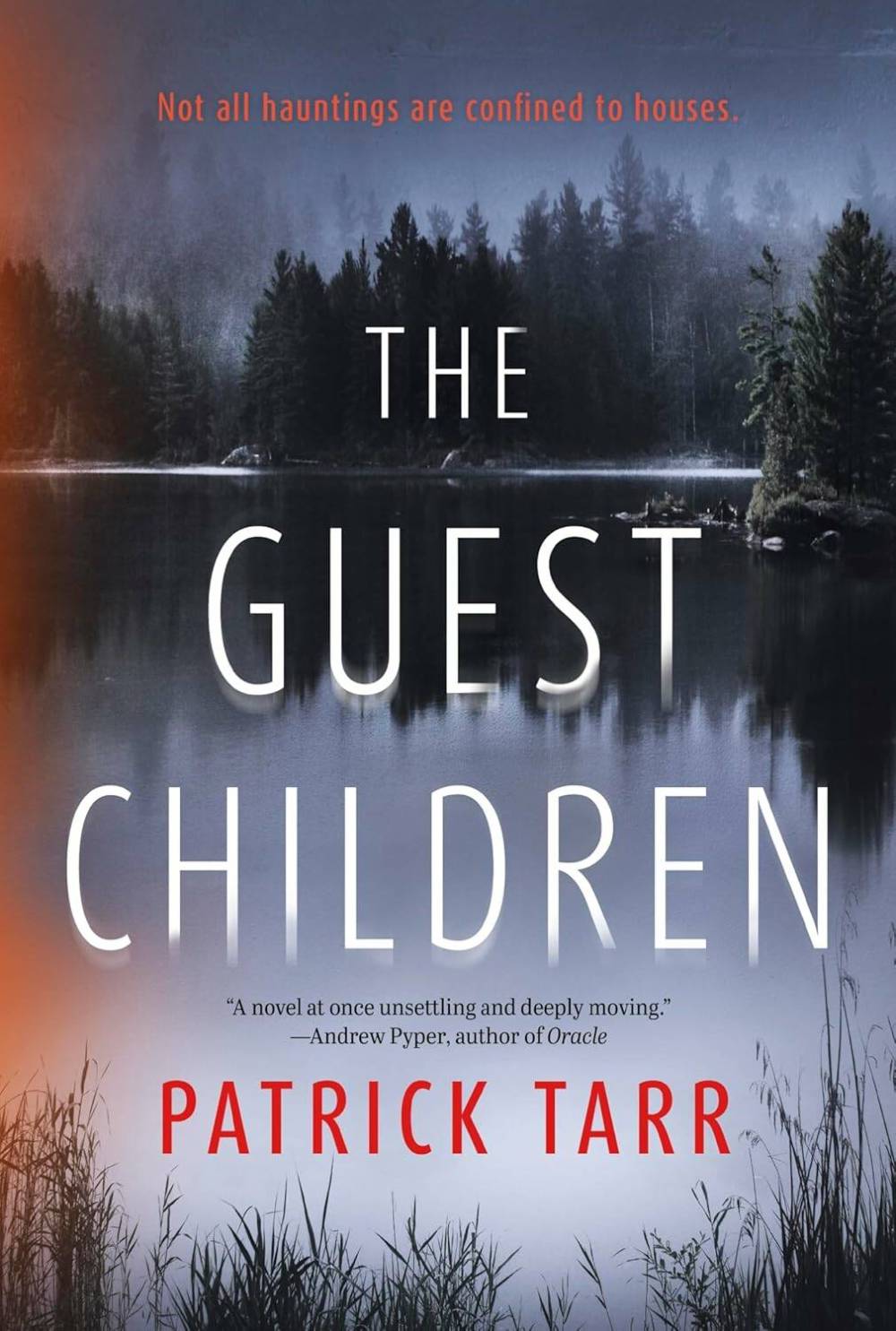In 1940, after the German Blitz flattens their London home and kills their parents, Frances and Michael Hawksby find themselves on a ship alongside other “guest children” being sent to Canada to wait out the war in safety.
Despite the best efforts of U-boats that sink one of their convoy (a calamity that also claims Michael’s beloved stuffed bear Stanley), the ship docks in Halifax; from there, brother and sister travel to Toronto and then north to Glass Point Lodge, their Aunt Theresa and Uncle Simon’s isolated inn on Blank Lake.
This is Canadian Shield country, “great swaths of old stone” covered in seemingly endless thick forest, dramatically different to anything the city children have ever known. Frances dislikes “the way the trees (look) in through the windows, as if… observing the lodge’s inhabitants,” and one night she wakes to find a wet boy also observing her. He introduces himself as Gerald, her aunt and uncle’s dead son, saying, “I’ve been very lonely without any other children around.”
The Guest Children
Simultaneously, Michael is outside in the dark following a mysterious voice that keeps calling his name. Somehow it belongs to Stanley, distorted now, who steps from the woods determined to take both children to their dead parents.
And so begins Torontonian Patrick Tarr’s gripping first novel.
Flash forward nearly five years: the Second World War has ended and Randall Sturgess, a young Toronto builder with a traumatic past and a guilt that he didn’t enlist — instead staying behind to look after his volatile brother Edward — finds himself freshly unemployed. Facing starvation and homelessness, Randall finesses his way into a job solving the disappearance of the Hawksby children, who went missing in late 1940.
Besides providing pay, the job interests Randall because, “These lost children reminded me of things I’d tried to leave behind long ago… I was taking myself back to the landscapes and memories of our childhood.”
Randall and Edward too were once young Londoners “carried off to Canada” because of war, but unlike Frances and Michael, as Randall notes, the brothers and “(t)ens of thousands of orphans or paupers like us were pulled from destitution and sent to the colonies to find purpose in labour.”
In 1922, Randall and Edward, then six and five years old respectively, reached Ontario and the remote Sturgess farm where “Mrs. Sturgess fed and clothed us while her husband made us work ourselves to the point of exhaustion before and after school.” A hard man whose cruelty scars the boys’ body, heart and mind, Mr. Sturgess reinforces their instinct that all they have is each other.
While Randall manages to leave Edward to pursue the investigation, he constantly worries about Edward. He is also beset by recurrent nightmares and dissociative fugues that lead him to doubt his sanity.
It doesn’t help that the Frances and Michael’s Aunt Theresa and Uncle Simon, as well as their peculiar guests, are at best indifferent and at worst hostile to Randall and his investigation. Simon claims that “those children simply ran away… They just left us. We looked everywhere, truly we did,” while a guest explodes, “Christ, will you not shut up about them?”
Undeterred, Randall continues to seek the truth despite learning that as he does, he cannot evade reckoning with the painful truths of his own haunted and lonely life. And as the tensions in and around the lodge mount, it seems less and less likely the secret keepers will permit Randall to leave.
The Guest Children is kin to the best works of psychological horror, including Shirley Jackson’s The Haunting of Hill House, Henry James’s The Turn of the Screw and the 1961 film The Innocents, the latter perhaps not surprising given Tarr’s long career in film and television.
While the novel is a creepy read perfect for late nights when you’re acutely aware of every creak and cry, it’s also a well-researched, vivid and compassionate story about trauma, guilt, grief and war’s extortionate costs.
Jess Woolford reads and writes in Winnipeg and beyond.


